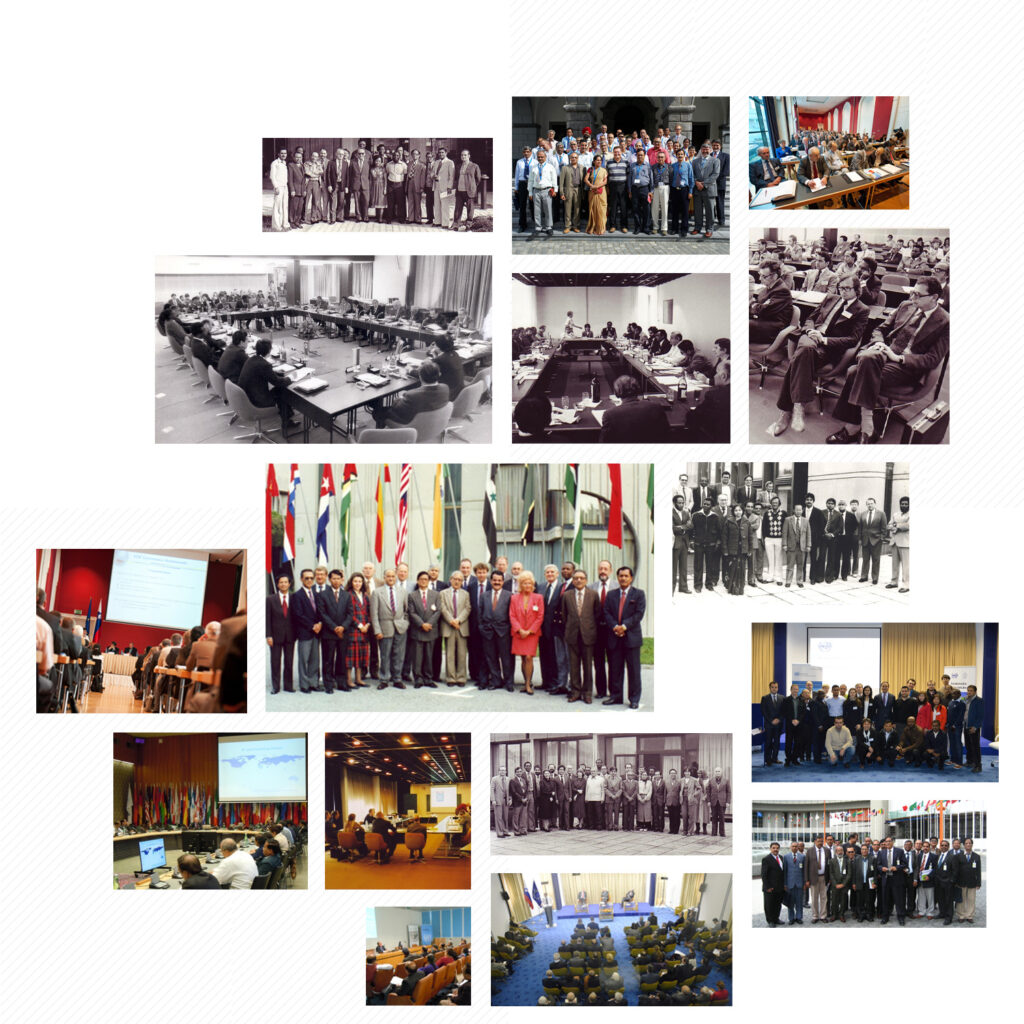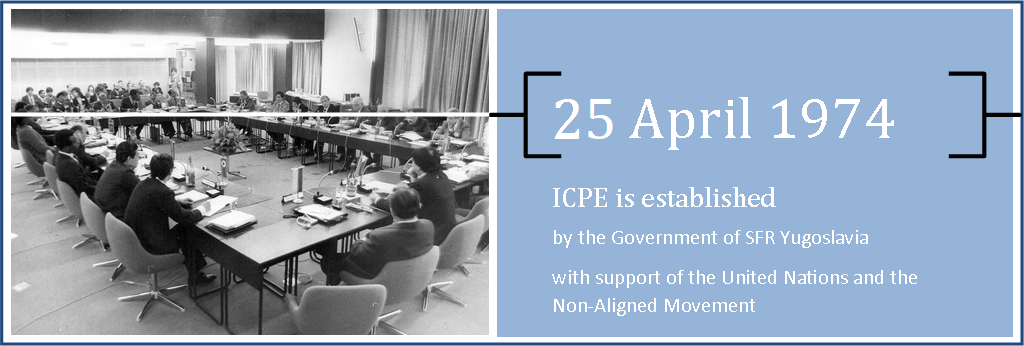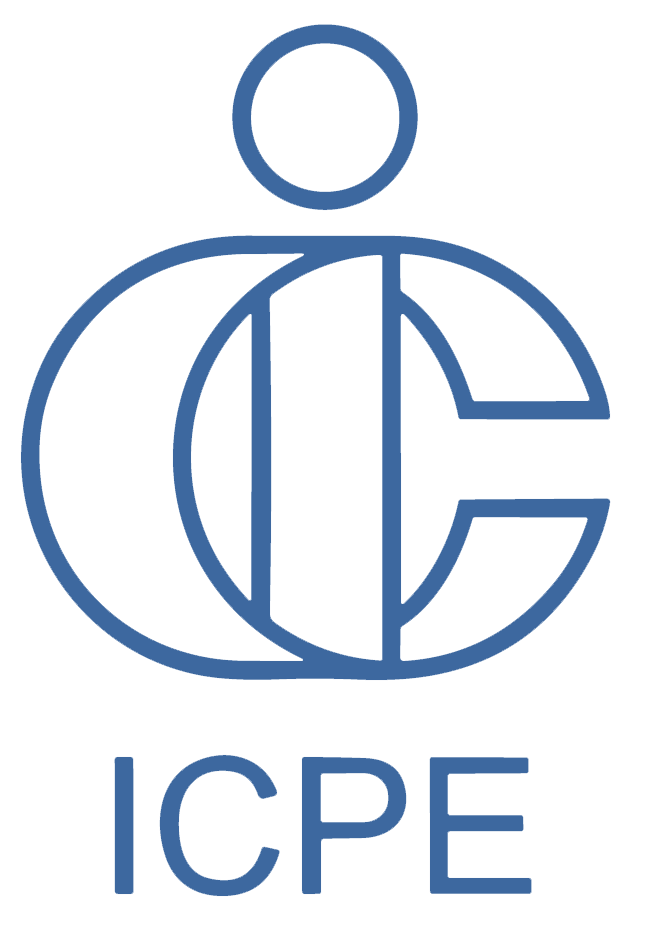About ICPE
We're marking our 50th anniversary
About ICPE
We're marking

ICPE’s esteemed history in international development and fostering global economic relations is a testament to its efforts in narrowing the developmental gap between Western countries and other regions, establishing it as a significant entity in the global arena. This resilience and adaptability, particularly evident during the critical transition of nations from the former Yugoslavia, is a result of the unwavering support from key member states. The founding member India, along with regional member Bosnia and Herzegovina and the host country Slovenia, have been instrumental in strengthening ICPE’s position as a vanguard in public sector development and international cooperation. Their collective support underscores ICPE’s dedication to advancing public sector excellence worldwide, reinforcing its impact in policy development and fostering intergovernmental collaboration.



During this era of dynamic transformation, the conception of ICPE (International Center for Public Enterprises in Developing Countries) took shape, aligning with the broader aspirations of the Non-Aligned Movement and the global South. This was a period of optimism, with newly independent nations striving for a more equitable 'New International Economic Order'. Public enterprises emerged as crucial for governance and economic stability in these developing countries.
In September 1974, a seminal seminar on Planning in Public Enterprises attracted representatives from 32 countries, catalyzing the push for ICPE to become an intergovernmental organization.
ICPE's journey, rooted in these ideals, advanced significantly in March 1976. At an international conference in Ljubljana, attended by 30 countries and 9 observers, it was agreed that ICPE would evolve into an intergovernmental organization, solidifying its role in supporting public enterprises across its member states.
This early period highlighted the pressing need for knowledge exchange among developing countries, particularly in managing public enterprises. ICPE's primary projects focused on planning, management, human resource education, and financing of public enterprises, addressing critical areas vital for the growth and efficiency of these institutions in the developing world.
1974: “Planning in Public Enterprises”
1975: “Education in Public Enterprises”
1975: “Financing and Management in Public Enterprises”
1976: “Self-management and Participation of Workers in Public Enterprises«(comparatively in 14 countries)
1977: “The Role of Public Sector in Developing Countries”
1977: “Women as a Factor of Development in Public Enterprises” (comparatively in 12 countries)
1978: “Management of Development and Transfer of Technologies”

ORGANIZATIONS


Throughout the 1980s, ICPE actively engaged in diverse initiatives. The OPTIMA ( Optimal Performance Through Internal Management Action ) research-educational-development project, a highlight of this era, was conducted in various countries, including Grenada, Tanzania, Malta, Mexico, Ethiopia, and Slovenia. It saw collaborations with scientific and educational institutions, government agencies, and companies. ICPE's funding diversified, with contributions from the Netherlands, Canada, and Sweden supplementing the existing support from the UNDP, UNIDO, and membership fees. The flagship OPTIMA Program, initiated in 1981, focused on public enterprise improvement across 14 countries. Additionally, ICPE conducted Public Enterprise Management and Development Planning programs for over 200 Namibian students under the UN Council for Namibia's Nationhood Program. From 1986, seminars in partnership with the Economic Development Institute of the World Bank (now World Bank Institute) were organized. In 1989, ICPE began preparations for a UNDP management development program for high-level Mongolian officials that was conducted in 1990.

In the mid-1980s, ICPE identified an essential need for an MBA program specifically designed for the intricacies of managing public enterprises. In response, in 1989, ICPE introduced a comprehensive twelve-month MBA program, drawing its first cohort from Guyana, India, Pakistan, Sri Lanka, and Yugoslavia. This program, supported by the United Nations Development Programme, the Government of the Netherlands, the International Labour Organization, and the Commonwealth Secretariat, was executed in partnership with the School of Economics and Business at the University of Ljubljana. Designed for leaders from diverse national backgrounds, the program spanned over 25 years and trained over 650 candidates from 45 countries. It marked a significant milestone as the first of its kind in South-Eastern Europe, connecting and molding leaders from Asia, Africa, and Latin America, many of whom later became influential figures in their home countries or international organizations.

The trajectory and accomplishments of ICPE are intrinsically linked to its dedicated team.
Mr. Žiga Vodušek's leadership as the Executive Director over a decade laid a strong foundation. Additionally, Mr. Anton Vratuša, PhD, was instrumental in establishing the Centre, serving first as Program Director and later as Council President until 1982, and remained involved as Honorary President until his passing in 2017.
The role of Chairperson of the ICPE Council is often occupied by high-ranking officials from member countries. Notably, eminent individuals from the Government of India, such as Mr. V.K. Dar, Mr. C.K. Modi, Mr. C. Subramaniam, Mr O.P. Rawat, and Mr. G. Parthasarathy, have significantly influenced ICPE's journey.

In the early 1990s, ICPE navigated through a period of significant transition. With declining financial backing from UN agencies and a reduction in active membership, the organization faced the challenge of redefining its role and strategy. The breakup of Yugoslavia led to Slovenia assuming the role of host country for ICPE in 1992, marking a new chapter in its history. During this time, ICPE sustained its commitment to education and development, notably through the ICPE-SEBLU MBA program. This program continued to be a beacon of international education, attracting students from various continents and contributing to ICPE's reputation as a center for excellence in public enterprise management. Additionally, ICPE's persistence in running projects related to human resources development, SMEs management, and franchising, often in collaboration with international organizations, showcased its resilience and adaptability in the face of changing geopolitical landscapes.

In the 21st century, the ICPE has focused on aligning its programs with the evolving needs of its member states. This period marked a significant shift in ICPE's approach, concentrating on developing and implementing programs that directly addressed the contemporary challenges faced by its member countries. The Center's efforts were concentrated on creating training modules and educational content that resonated with the demands of modern governance, public enterprise management, and sustainable development practices.
ICPE's commitment to this new direction was evident in its diverse range of educational initiatives and high-level international collaborations. By hosting and participating in various global events, ICPE fostered an environment of learning and exchange, crucial for understanding and meeting the needs of its member states. These concerted efforts were not just about maintaining ICPE's relevance; they were about reasserting its position as a leading international institution in the field of public enterprise management, adapting to changing global dynamics while preserving its core mission.

In 2012, ICPE became a member of the Telecommunication Development Sector (ITU-D) of the International Telecommunication Union.
In 2014 the ICPE signed a Memorandum of Understanding with the United Nations Industrial Development Organization to build on the existing Agreement from 1979.
In the last decade the ICPE has extended its collaborative network in India and signed Memoranda of Understanding with esteemed research organizations and government institutions:
The collaboration between the ICPE and the School of Economics and Business, University of Ljubljana (SEB LU) has been a significant chapter in ICPE's history. Beyond the notable MBA programme, which stands as a hallmark of this partnership, both institutions have jointly initiated other impactful short-term programmes. One such innovative initiative was the International Certificate Program for Women Executives of Central Public Sector Enterprises of India. This program reflected the shared commitment to fostering inclusive leadership and providing specialized education tailored to the unique challenges and opportunities faced by women in executive roles. This enduring collaboration between ICPE and SEB LU demonstrates a shared vision for advancing education and professional development in the public sector, contributing substantially to building a skilled and diverse leadership pool in the global arena.
Bridging High-Level Events and Specialized Forums

The Center organized several significant events, such as the Symposium on Future Challenges of Public Enterprises, with support of the School of Economics and Business, University of Ljubljana and under the high patronage of the Ministry of Finance, the Republic of Slovenia.
The High Level Meeting of the State Ownership Authorities: State as an owner – ownership policy, execution of state interests and fostering of public-private dialogue, attracting global participation
Sustainable Development Initiatives: ICPE reinforced its commitment to sustainable development, evidenced by conferences on environmental management and the management of protected nature areas.
ICPE held three international conferences on Economic Diplomacy and Internationalization in Slovenia and Bosnia and Herzegovina, bringing together a vast array of participants.
ICPE was the founding initiator and a co-organizer of the International Conference Africa Day in cooperation with the Ministry of Foreign and European Affairs, Republic of Slovenia, Club of Former Slovenian Ambassadors and the African Forum.
The Center marked its 40th anniversary with an International Conference “Corporate Social Responsibility: The Good Outweighs the Costs”, in collaboration with the School of Economics and Business, University of Ljubljana and the Department of Public Enterprises, Ministry of Finance, Government of India.
At the heart of ICPE's activities are its International Training Programmes, a cornerstone in fulfilling its mission. In recent years the ICPE has adeptly conducted more than 25 short-term training and educational programs, engaging over 600 participants from its member states and other developing countries. These programs, meticulously designed to cater to the unique needs of public officials, policy makers, and professionals underscore ICPE's commitment to enhancing skills and knowledge in public enterprise management and governance. This contribution to capacity building among its member states is a testament to ICPE's role in international public sector education and development.
International Training Programme on Budgeting, Accounting, and Financial Management
Post Graduate Diploma in Management – Financial Management
International Training Programme - Senior Professional Course
International Training Programme: Diploma in Accounting and Internal Audit
Executive Development Programme for ICoAS Officers
